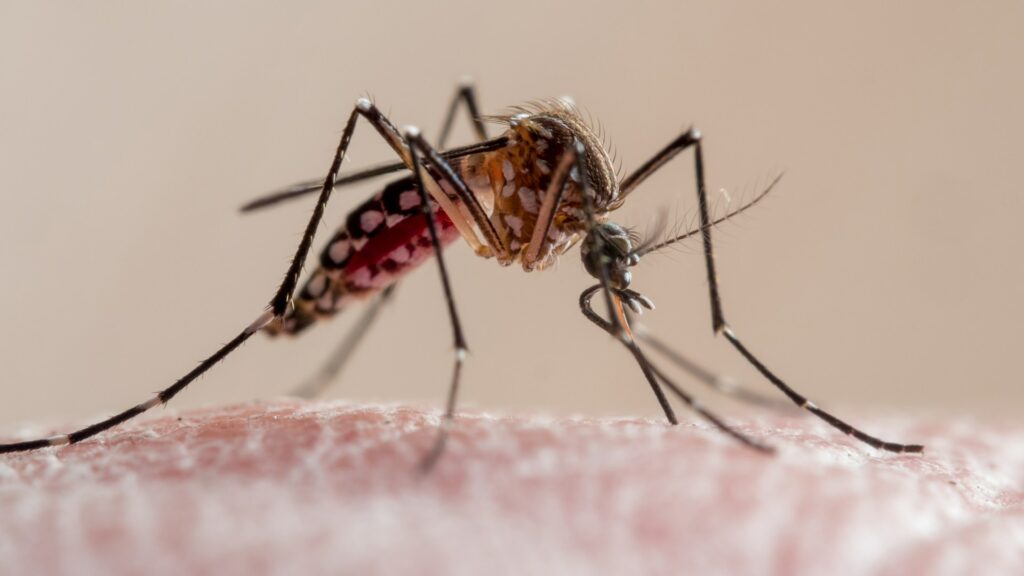3
Cases have been reported in the remote Panzi region
“Of the 12 initial samples collected, ten tested positive for malaria, although more than one disease may be involved,” a World Health Organization (WHO) spokesperson said.
“Further samples will be collected and tested to determine the exact cause or causes,” they added.
Malaria is a serious infection spread by mozzie bites.
Though it isn’t found in the UK, Brits are at risk of getting it when jetting off to tropical spots it’s commonly found in – such as Central and South America and parts of Asia and Africa.
The potentially fatal disease can be almost completely avoided by taking malaria prevention tablets when appropriate.
The local health minister said last week that the disease had killed 79 people in the Panzi health zone since 24 October, with 376 cases identified.
More than half cases were children under the age of five who were severely malnourished, the WHO said in a statement on Sunday.
The actual number of deaths, which are occurring in the remote Panzi region, is difficult to determine, with some reports saying up to 143 have died.
The main symptoms are similar to flu, with patients experiencing headaches, coughing, difficulty breathing and anaemia.
A team of scientists from the WHO are currently on the ground investigation the illness that’s believed to have started circulating in October.
World is not prepared for looming Disease X pandemic says Doctor Tedros Ghebreyesus
However, WHO officials are still struggling to identify the origin of the pathogen.
Due to the outbreak occurring in a remote area with poor road conditions and heavy rainfall, it took the WHO team approximately two days to reach the site.
It’s also been harder to trace the exact source of the bug as the most serious cases of the illness have also involved patients suffering from severe malnutrition.
“These challenges, coupled with limited diagnostics in the region, have delayed the identification of the underlying cause,” the WHO said.
Could it be ‘Disease X’?
Amid speculation that the outbreak could represent ‘Disease X’, the term refers to a previously unknown pathogen with the potential to cause a pandemic.
The WHO clarified that it is “an undiagnosed disease rather than an unknown” one.
Specialists had already said was likely a respiratory pathogen, like the flu but had already ruled out coronavirus.
Pathogens such as malaria and measles were also being investigated.
In a bid to contain the spread, Hong Kong announced last week tighter airport screenings for passengers flying in from Johannesburg and Addis Ababa.
Over in Japan, officials are urging citizens to skip unnecessary trips to the affected region.
Concerns first raised in October
An alert was sent to WHO on October 29 by the DRC’s Ministry of Public Health raising concerns over a mysterious illness that had caused “increased” deaths.
In a press briefing on December 5, the WHO said the mortality rate was about eight per cent and that several deaths had been reported outside health facilities.
Symptoms of malaria
Malaria is a serious infection spread by mosquitoes.
If it’s not diagnosed and treated quickly, you can die from it.
Malaria is caused by being bitten by an infected mosquito and it can take just one bite to get it.
It can be hard to spot, but symptoms include:
A high temperature, sweats and chillsHeadaches and feeling confusedFeeling very tired and sleepy (especially in children)Feeling and being sick, tummy pain and diarrhoeaLoss of appetiteMuscle painsYellow skin or whites of the eyesA sore throat, cough and difficulty breathing
These symptoms usually appear between seven and 18 days after you’ve been bitten by an infected mosquito.
But sometimes you may not have symptoms for months after travel, and rarely years.
Ask for an urgent GP appointment or call NHS 111 if you have travelled to a country where malaria is found and have malaria symptoms.
The infection is very common in certain parts of the world, including:
Large areas of Africa and AsiaCentral and South AmericaDominican Republic and Haitiparts of the Middle EastSome Pacific islands
Malaria is not found in the UK and you can’t catch it from another person.
Source: NHS
3
Democratic Republic of Congo’s health minister Roger Kamba attends a press conference in Kinshasa, CongoCredit: AP
Source link : http://www.bing.com/news/apiclick.aspx?ref=FexRss&aid=&tid=675b8b46523c4cd7ad965e4dfaa391a1&url=https%3A%2F%2Fwww.thesun.co.uk%2Fhealth%2F32219613%2Fmysterious-disease-x-outbreak-who-warns-two-diseases%2F&c=16710699680317343986&mkt=en-us
Author :
Publish date : 2024-12-10 20:21:00
Copyright for syndicated content belongs to the linked Source.
